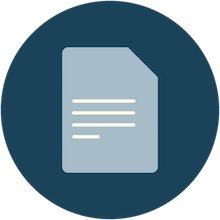EARLI 2019
JURE 2019
The JURE 2019 Pre-Conference invites Junior Researchers from around the world to engage in compelling discussions on "Junior Researchers Thinking Tomorrow's Education". JURE 2019 offers early career researchers a first academic conference experience, and the opportunity to meet colleagues from across the globe.
EARLI 2019
The 18th Biennial EARLI Conference will be hosted at RWTH Aachen University, Germany. We encourage participants to present results and ideas on state-of-the-art research in learning and instruction, specifically around the topic "Thinking Tomorrow's Education: Learning from the past, in the present and for the future".
EARLI 2019 IN NUMBERS
Are you curious to find out more about EARLI 2019 in facts and figures? Want to know how many delegates we welcomed in Aachen, how many sessions were scheduled or how much coffee was consumed?
Consult our EARLI 2019 in numbers !
THEME
Thinking Tomorrow's Education: Learning from the past, in the present and for the future.
VENUE
Located in the state of North Rhine-Westphalia, Germany’s westernmost city offers a rich history and cultural, archeological and architectural heritage.
Characterised by winding alleys flanked by baroque buildings and overlooked by its famous UNESCO world heritage Cathedral, the city was the seat of Charlemagne, sometimes referred to as the “Father of Europe”. He can be considered as one of the first persons who helped to mold a collective European historical thinking.
Located on the three country corner, where the borders of Germany, Belgium and the Netherlands meet, Aachen is a popular tourist destination, easily reached by train and car. There are a myriad of airports to choose from spread across several countries – Maastricht-Aachen (NL), Cologne, Frankfurt and Düsseldorf (DE) or Brussels (BE) – each of which offer a good railway connection to the city. Aachen counts approximately 45,000 students on a population of 258,000. As a high-tech city, it’s involved in several cross-border knowledge region initiatives such as the ELAt (triangle Eindhoven – Leuven – Aachen).
Hosted at the RWTH Aachen University, we are looking forward to welcome you in the brand-new state-of-the-art C.A.R.L. building, offering the perfect conference setting, and closely located to the Aachen train station (2 kilometres) and historic city centre.
Consult our interactive map to Aachen with tips and advice from locals!
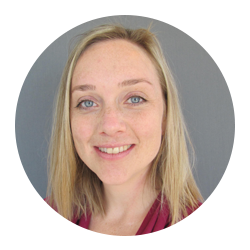
Dr. Larike Bronkhorst
Utrecht University (NL)
"At the boundary of school: Dis/continuities in students' in and out-of-school participations"
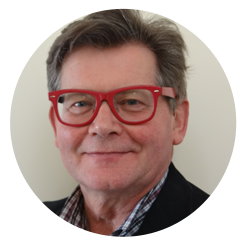
University of Auckland (NZ)
"Products, Processes, Psychology and Technology: Quo Vadis Educational Assessment?"
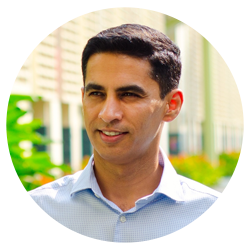
Prof. Dr. Manu Kapur
ETH Zürich (CH)
"When Productive Failure Fails"
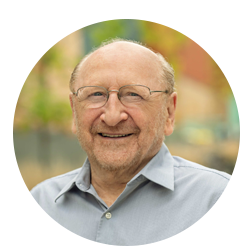
Prof. Dr. Stuart Karabenick
University of Michigan (USA)
"Motivation and Self-Regulated Learning:
Introducing Strategy Motivation and Information Regulation"
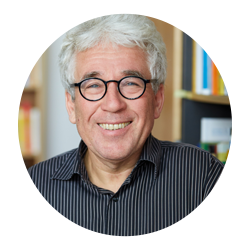
Prof. Dr. Eckhard Klieme
DIPF (DE)
"Research on Teaching: Content Matter, Practices, Quality and Effectiveness"
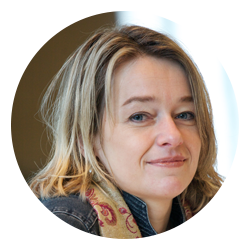
Prof. Dr. Lydia Krabbendam
VU Amsterdam (NL)
"Educational Neuroscience: Promises and Pitfalls"
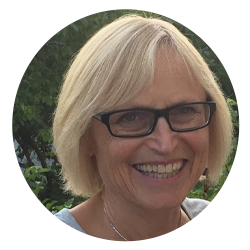
Prof. Dr. Synnøve Matre
Norwegian University of Science and Technology (NO)
"The Role of Writing in Education"
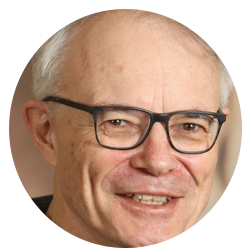
Prof. Dr. Jonathan Osborne
Stanford Graduate School of Education (USA)
"Argumentation, Interaction and Learning: Lessons From Science Education"
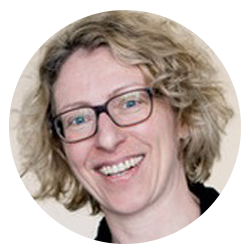
Prof. Dr. Nikol Rummel
Ruhr University Bochum (DE)
"Thinking Tomorrow's Computer-Supported Collaborative Learning: Challenges and Opportunities"
EARLI 2019 GOES GREEN!
To lower the environmental impact of our conference, we are taking a number of steps to reduce waste and offer eco-friendly alternatives to your conference experience. Each delegate will receive a special EARLI 2019 reusable water bottle in their conference bag, instead of using plastic cups for water breaks. Reusable porcelain coffee mugs will replace throwaway plastic or paper mugs for your daily caffeine fix. Additionally, printed programme books will be offered at a small surcharge or 10€ to those who prefer a hard copy (to be purchased together with your registration ticket). The EARLI 2019 conference app offers an environmentally-friendly alternative to check the last updates to the conference programme!
IMPORTANT DATES
Due to a possible clash with the Formula 1 in Spa-Francorchamps (BE) which takes place at the end of August, EARLI has decided to move its conference a bit earlier, now taking place from August 10th-11th (JURE 2019) and 12th -16th (EARLI 2019).
-
1 September 2018Submissions open
-
31 October 2018 (extended due to technical error)Submission deadline
-
15 January 2019Review deadline
-
17 January 2019Registrations open
-
31 January 2019Review deadline - third review
-
15 February 2019Review decisions announced
-
3 April 2019Early Bird Deadline
-
10 - 16 August 2019JURE 2019 + EARLI 2019
SUBMISSION TYPES
PAPER
A paper session consists of four papers and is scheduled for 90 minutes.
POSTER
Poster sessions are scheduled for 90 minutes, following the format above. Materials for fixing posters on the walls or poster boards will be provided.
SYMPOSIUM
A symposium is scheduled for 90 minutes, allowing 15 minutes presentation time per speaker, ten minutes for the discussant, and 20 minutes for open discussion.
ROUNDTABLE
Roundtable sessions offer opportunities for a more discursive exploration of research issues. This may well involve discussion of work in progress. The presenters explain their research and research issue, and invite the participants to help to discuss emerging data or to solve a research issue or problem. Roundtable sessions will take place in seminar rooms with a board-room style table.
Three to five roundtable sessions are clustered together per session, and are scheduled for 90 minutes.
ICT DEMONSTRATION
ICT Demonstrations allow presenters to display, explain and familiarise users with a potentially useful teaching or research tool or method. The presentation may include references to completed research, but the point of the session is to demonstrate the tool, not present the research for criticism. The audience may offer their viewpoints and share their experiences with similar tools or different tools for the same purpose.
ICT Demonstrations are scheduled individually, for 90 minutes.
WORKSHOP
Workshops allow presenters to display, explain and familiarise users with a potentially useful teaching or research tool or method. The presentation may include references to completed research, but the point of the session is to demonstrate the tool, not present the research for criticism. The audience may offer their viewpoints and share their experiences with similar tools or different tools for the same purpose.
Workshops are scheduled individually for 90 minutes.
JACOBS FOUNDATION TRAVEL AWARD
The EARLI Executive Committee (EC) in collaboration with the Jacobs Foundation, would like to express its commitment to valorise high quality research conducted in countries that are facing financial struggles and where researchers have little access to travel funds.
As such, we are pleased to offer the Jacobs Foundation Travel Award, granted in the form of a waived conference fee for the EARLI 2019 and/or JURE 2019 conference and a € 1.000 travel and accommodation budget.
EARLI 2019 Committee
Conference President
Prof. Marold Wosnitza, RWTH Aachen University, DE
Conference Manager
Judith Fränken, RWTH Aachen University, DE
National Scientific Committee
Jun-Prof. Fani Lauermann, University of Bonn, DE
Prof. Rob Martens, University Heerlen, NL
Prof. Reinhard Pekrun, LMU Munich, DE
Prof. Mien Segers, University of Maastricht, NL
Prof. Marold Wosnitza, RWTH Aachen University, DE
Local Organising Committee
Judith Fränken
Dr. Kerstin Helker
Philipp Nolden
Dr. Karen Zschocke
Kerstin Theilmann

